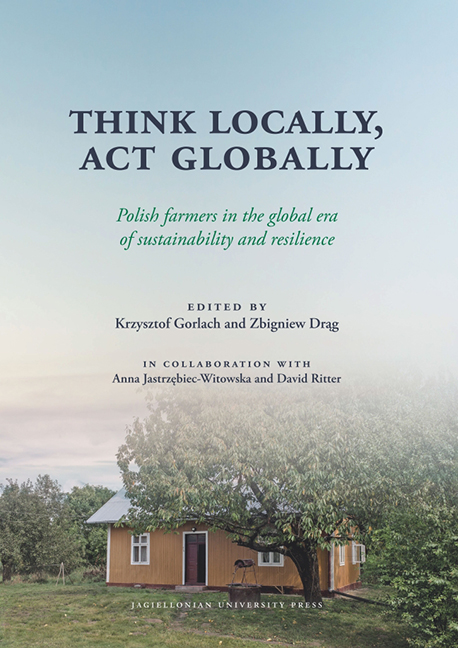Book contents
- Frontmatter
- Contents
- Family Farming: A foreword
- An Introductory Letter from the First Editor: Where the horses, cows, and even cats had their own names
- Part One Theoretical and Methodological Considerations
- Part Two Changes in the Post-Communist Transformation
- Part Three Diversification of Farmers’ Strategies
- Part Four Some Independent Studies
- Conclusion: Some Final Remarks from the First Editor
- Afterword: Renewing a Sociology of Agriculture
- Biograms
Some Introductory Remarks by the First Editor to Part Four
Published online by Cambridge University Press: 16 July 2022
- Frontmatter
- Contents
- Family Farming: A foreword
- An Introductory Letter from the First Editor: Where the horses, cows, and even cats had their own names
- Part One Theoretical and Methodological Considerations
- Part Two Changes in the Post-Communist Transformation
- Part Three Diversification of Farmers’ Strategies
- Part Four Some Independent Studies
- Conclusion: Some Final Remarks from the First Editor
- Afterword: Renewing a Sociology of Agriculture
- Biograms
Summary
The last part of this work, containing chapters 12 through 15, has a rather specific character. It consists of relatively independent studies, conducted at the proverbial outskirts of the mainstream research, by authors that include some members of the project team, employed as post-doctoral researchers or as scholarship recipients. This part of the publication also contains writings by authors who are loosely connected with the research team, as either volunteers or informal collaborators.
The first chapter of the discussed part comprises Chapter 12 of the entire publication. Its author, Adam Mielczarek, PhD, focuses on qualitative analysis of the functioning of a small group of dairy farms located in central Poland. The main goal of Mielczarek's analysis is to elucidate the various lifestyles of several generations of farmers engaged in the dairy sector.
The second chapter of this part, Chapter 13, addresses various aspects of food safety and food security. Its three authors are: Zbigniew Drąg, PhD (second editor); Professor Piotr Nowak, PhD (informal collaborator in the project); and Martyna Wierzba-Kubat (PhD candidate and a scholarship recipient in this project). This particular chapter presents opinions and attitudes of the surveyed farmers on matters pertinent to food safety and food security.
The third chapter of this part, comprising Chapter 14 of the entire publication, concentrates on the role, and increasing importance, of information technologies in regard to various aspects of farm management. The content of this chapter is provided by Adam Dąbrowski (PhD candidate and a volunteer in the project), Maria Kotkiewicz (PhD candidate and a scholarship recipient), and Professor Piotr Nowak (informal collaborator on the project). The authors examine and interpret the results of the study done specifically for this project, as well as earlier studies that they conducted.
Finally, Chapter 15, which is the last chapter of this part, and written by Professor Grzegorz Foryś (informal collaborator on the project), deals with problems of farmers’ political mobilization. The reflection's focus for this chapter is based on the results of the study customized for this project and other sources considered by the author.
- Type
- Chapter
- Information
- Think Locally, Act GloballyPolish farmers in the global era of sustainability and resilience, pp. 521 - 522Publisher: Jagiellonian University PressPrint publication year: 2021

